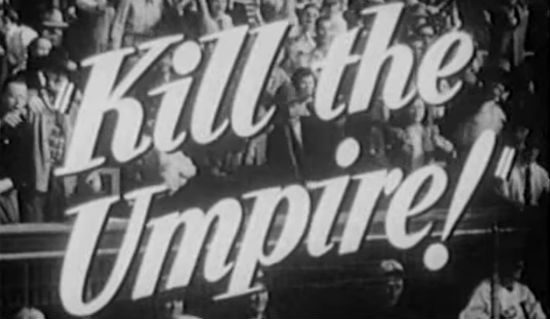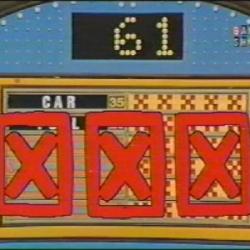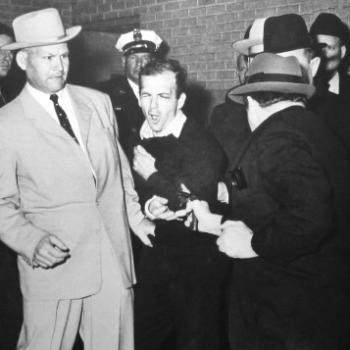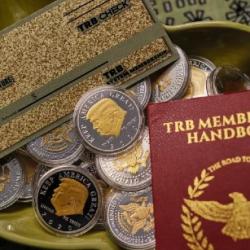That quote from Shakespeare’s 2 Henry VI hung on a plaque in my dad’s law office. Dad knew that many people saw it as just another lawyer joke, as an expression of contempt for his profession. But he also knew what the quote really meant in context. The character saying that, Dick the Butcher, was plotting treason. Shakespeare and Dick both understood that such plots could only succeed if they eliminated the “lawyers” who would deem them illegitimate. By putting those words in the mouth of Dick the Butcher, Shakespeare was commending lawyers as arbiters of law, legitimacy and truth.
Beware of anyone who wants to eliminate all arbiters of law, legitimacy, and truth. Beware of anyone who dismisses law, or fact-checking, or academics, or science, or data. If they see those arbiters as a threat, then they likely see truth and reality as an obstacle. They’re probably trying to lead you somewhere unreal.

Conservative AM talk radio host Charlie Sykes has come to regret playing along with Dick the Butcher’s plan now that decades of killing all the lawyers has eliminated any need to correlate words with reality:
One of the chief problems, Sykes said, was that it had become impossible to prove to listeners that Trump was telling falsehoods because over the past several decades, the conservative news media had “basically eliminated any of the referees, the gatekeepers.”
“There’s nobody,” he lamented. “Let’s say that Donald Trump basically makes whatever you want to say, whatever claim he wants to make. And everybody knows it’s a falsehood. The big question of my audience, it is impossible for me to say that, ‘By the way, you know it’s false.’ And they’ll say, ‘Why? I saw it on Allen B. West.’ Or they’ll say, ‘I saw it on a Facebook page.’ And I’ll say, ‘The New York Times did a fact check.’ And they’ll say, ‘Oh, that’s The New York Times. That’s bulls—.’ There’s nobody — you can’t go to anybody and say, ‘Look, here are the facts.'”
“And I have to say that’s one of the disorienting realities of this political year. You can be in this alternative media reality and there’s no way to break through it,” Sykes continued. “And I swim upstream because if I don’t say these things from some of these websites, then suddenly I have sold out. Then they’ll ask what’s wrong with me for not repeating these stories that I know not to be true.”
Donald Trump is the extreme end-product of this process, but it’s been a long time coming. There was the decision to oppose all things Al Gore by making the chemical properties of carbon a matter of partisan dispute, so that now denying the undeniable fact of climate change is a mandatory Republican stance. There was Colin Powell at the U.N., and “yellowcake” and the flood of lies used to sell the invasion of Iraq to allies, and to Congress, and to the public. The 2004 election brought us swift-boating. In 2008 we met Sarah Palin. And Mitt Romney moved the process along in 2012 — not just by uttering an endless stream of falsehoods about his opponent, but by steadfastly refusing to stop doing so after being repeatedly called out and corrected.
Longtime press critic Jay Rosen has a smart piece exploring what this all means for journalists trying to cover the 2016 election and the campaign of a compulsive fantasist like Donald Trump, “Asymmetry between the major parties fries the circuits of the mainstream press“:
Now imagine what happens when over time the base of one party, far more than the base of the other, begins to treat the press as a hostile actor, and its own establishment as part of the rot; when it not only opposes but denies the legitimacy — and loyalty to the state — of the other side’s leader; when it prefers conspiracy theory to party-friendly narratives that at least cope with verified fact; when it is scornful of the reality that in a divided system you never get everything you want.
… Trump’s threat to the press goes far deeper than his flagrant abuse of journalists and the threatening noises he has made about libel law.
When I say he’s trying to break the press, I mean the entire system that gives honest journalism a role in the republic. Trump is running against such basic notions as:
- “we need a fact-based debate or there can’t be consent of the governed;”
- “there’s a public record that cannot just be wiped away;”
- “a candidate’s position on major issues should be made clear to the voters;”
- “lying cannot become a universal principle in politics without major damage to our democracy.”
Not only is he running against such fundamentals, the continuity of which is assumed by all forms of campaign coverage, but journalists are the ones who understand best his assault on these basic principles. They’re living it every day. Of course, he’s running against them, too.
A political style that mocks the idea of a common world of facts — and gets traction with that view — is an attack on the very possibility of honest journalism. Campaign journalists have to find a way to oppose this style without becoming election-season opponents of Trump himself, which is not, I think, their proper role. Nothing in their training or tradition would have prepared them for this moment.
I first saw this unpreparedness that Rosen describes back in 2004, when I was working for the largest newspaper in Delaware. That state happened to be home to one of the leaders of the “Swift Boat” campaign that was spreading demonstrable lies about Sen. John Kerry’s military service. Those lies were about matters of public record — publicly available documents prepared decades earlier by the U.S. Navy. But our paper printed the claims and assertions of the “Swift Boat” smear campaign without also printing the documented facts that rebutted them. “That’s not our job,” the managing editor told me, “it’s John Kerry’s job and we don’t work for the Kerry campaign.” (Then I said that we apparently don’t work for our readers either, since we didn’t see any professional obligation to give them the truth as accurately as we could. And then things got kind of shout-y.)
Eventually, we ran a piece allowing the Kerry campaign to “respond” to the allegations. The claims and counter-claims of the two sides were presented as symmetrically legitimate, with a passing mention that Naval records themselves also had some sort of opinion on what the Naval records said, but that was neither here nor there. The overweening concern in all of that was to appear disinterested so as to be insulated from any accusation of partisan bias. But my boss confused being a dis-interested arbiter with being un-interested in accuracy. And that was exactly what Dick the Butcher’s Swift Boat Veterans Against the Very Idea of Truth was counting on.
Our paper was not alone in dropping the ball when it came to that swift-boat BS. Twelve years later, journalists are now faced with an even more extreme version, but even if they’re belatedly recognizing the need for a better approach to confirming the accuracy of what they publish they’re now less-equipped to do so. By the time I lost my job in the fourth round of lay-offs at that paper, I’d seen more than half of our news-gathering and editorial desks emptied. And that’s been the pattern everywhere, with tens of thousands of people once employed to confirm accuracy now forced to find another way to make a living. “The first thing we do, let’s lay-off all the fact-checkers.”
Journalism — as a profession, or as a craft, or as a business — is even less prepared for the challenge of Donald Trump than it was in 2004. Rosen’s critique is dead-on. His prescription, alas, is woefully unspecific:
Now we’re here and novelty demands novelty. If journalists are to rise to the occasion in the final six weeks of this campaign, they will have to find a style of coverage as irregular as Trump’s political style.
















